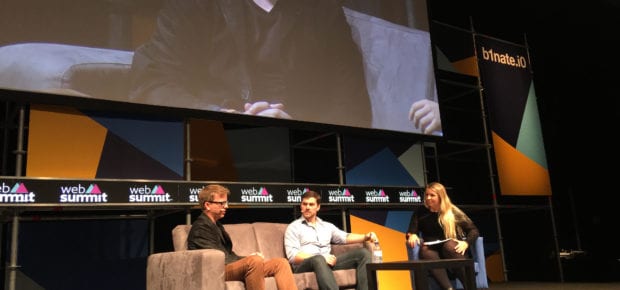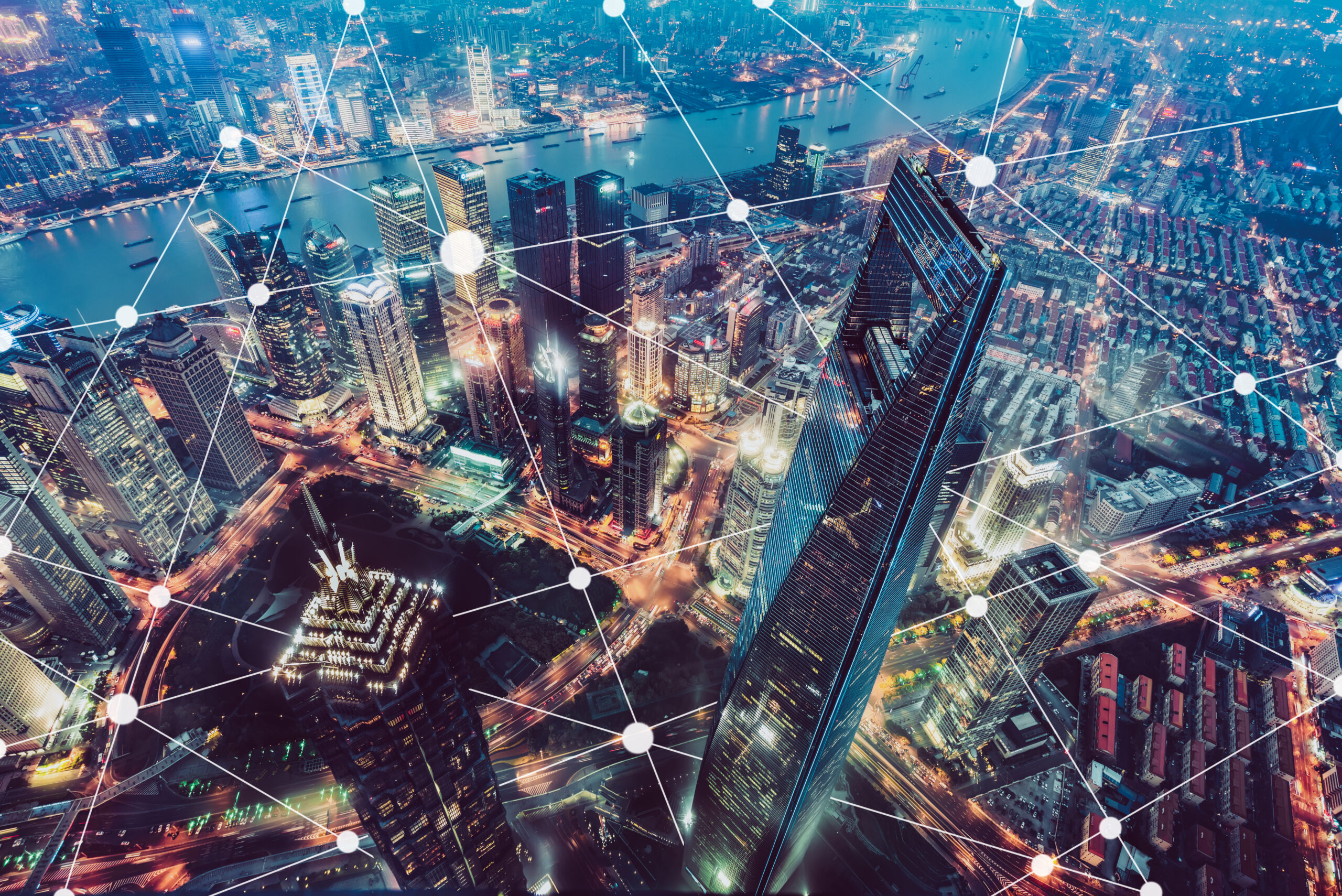November 9, 2016
IEEE Member Diogo Monica (Security Lead, Docker) was front-and-center with Nathan Eagle (CEO, Jana) and moderator Katie Collins (Reporter, CNET) to dive into a complicated conversation on data collection.
The panel revolved around data ethics, begging the question of whether or not public data should be seen as “fair game.” Monica jumped right in to say that the foundation of data collection should be establishing legitimate consent — urging companies to follow an opt-in vs. opt-out mindset around data collection that puts transparency with consumers first.
Eagle expanded on the topic of consent by recalling his experience working with call detail record (CDR) data. He suggested that there’s huge value in analyzing data, and it’s been done for decades to understand consumers. The missed opportunity though, according to Eagle, has been analyzing specific data points instead of looking more closely at aggregate data.
Monica maintained his stance on transparency when asked how the system could be made better. He suggested that problem isn’t with data collection, but instead with process and protocol, saying that if there isn’t a process, the system is broken from the beginning. Monica said that it’s critical to identify the clear business value or objective that justifies data collection. He went on to reinforce Eagle’s point, saying that businesses should analyze the aggregate data while adopting differential privacy measures that protect anonymous data points, holding the company responsible for transparent data collection.
Eagle and Monica both agreed that there’s a model for bringing the user into the data exchange. When you create a value-based exchange with the consumer, you’re gathering a better, more reliable set of data. Ultimately, this level of transparency promotes self-reporting, a technique that served Eagle particularly well when he conducted his CDR work in Rwanda in an attempt to create predictive data models around cholera outbreaks by analyzing movement data.
When regulation snuck its way into the conversation, Monica warned that it’s best to let big companies set the standards. He suggested looking at industry leaders who have existing data retention policies, enforced in tandem with privacy policies to establish a benchmark. Monica added that evaluating factors like correlation and metadata are important and can be impactful, but it’s critical to first solve for “why,” while also understanding how the data will be used and collected.
Eagle shared Monica’s sentiment on standards, and both agree that the conversation around data collection is in need of a pivot toward positivity. Monica said the conversation needs to be steered away from data breaches, and instead on the economic benefits and incentive of data collection without government regulation, which he says could be detrimental to security.
Monica wrapped up the panel by pointing out companies like Facebook and Apple as strong examples of transparency in data collection. In particular, he cited Apple’s work with differential privacy as a bold move in favor of the user, where data sets are fully anonymized.





 Meaningful Momentum or Running in Place?
Meaningful Momentum or Running in Place? AI Through Our Ages
AI Through Our Ages Liquid Infrastructure: Our Planet's Most Precious Resource
Liquid Infrastructure: Our Planet's Most Precious Resource The Impact of Technology in 2025
The Impact of Technology in 2025 Quantum and AI: Safeguards or Threats to Cybersecurity?
Quantum and AI: Safeguards or Threats to Cybersecurity? Why AI Can't Live Without Us
Why AI Can't Live Without Us Bits, Bytes, Buildings and Bridges: Digital-Driven Infrastructure
Bits, Bytes, Buildings and Bridges: Digital-Driven Infrastructure Impact of Technology in 2024
Impact of Technology in 2024 Emerging AI Cybersecurity Challenges and Solutions
Emerging AI Cybersecurity Challenges and Solutions The Skies are Unlimited
The Skies are Unlimited Smart Cities 2030: How Tech is Reshaping Urbanscapes
Smart Cities 2030: How Tech is Reshaping Urbanscapes Impact of Technology 2023
Impact of Technology 2023 Cybersecurity for Life-Changing Innovations
Cybersecurity for Life-Changing Innovations Smarter Wearables Healthier Life
Smarter Wearables Healthier Life Infrastructure In Motion
Infrastructure In Motion The Impact of Tech in 2022 and Beyond
The Impact of Tech in 2022 and Beyond Cybersecurity, Technology and Protecting Our World
Cybersecurity, Technology and Protecting Our World How Technology Helps us Understand Our Health and Wellness
How Technology Helps us Understand Our Health and Wellness The Resilience of Humanity
The Resilience of Humanity Harnessing and Sustaining our Natural Resources
Harnessing and Sustaining our Natural Resources Creating Healthy Spaces Through Technology
Creating Healthy Spaces Through Technology Exceptional Infrastructure Challenges, Technology and Humanity
Exceptional Infrastructure Challenges, Technology and Humanity The Global Impact of IEEE's 802 Standards
The Global Impact of IEEE's 802 Standards Scenes of our Cyber Lives: The Security Threats and Technology Solutions Protecting Us
Scenes of our Cyber Lives: The Security Threats and Technology Solutions Protecting Us How Millennial Parents are Embracing Health and Wellness Technologies for Their Generation Alpha Kids
How Millennial Parents are Embracing Health and Wellness Technologies for Their Generation Alpha Kids Space Exploration, Technology and Our Lives
Space Exploration, Technology and Our Lives Global Innovation and the Environment
Global Innovation and the Environment How Technology, Privacy and Security are Changing Each Other (And Us)
How Technology, Privacy and Security are Changing Each Other (And Us) Find us in booth 31506, LVCC South Hall 3 and experience the Technology Moon Walk
Find us in booth 31506, LVCC South Hall 3 and experience the Technology Moon Walk Virtual and Mixed Reality
Virtual and Mixed Reality How Robots are Improving our Health
How Robots are Improving our Health IEEE Experts and the Robots They are Teaching
IEEE Experts and the Robots They are Teaching See how millennial parents around the world see AI impacting the lives of their tech-infused offspring
See how millennial parents around the world see AI impacting the lives of their tech-infused offspring Take the journey from farm to table and learn how IoT will help us reach the rising demand for food production
Take the journey from farm to table and learn how IoT will help us reach the rising demand for food production Watch technical experts discuss the latest cyber threats
Watch technical experts discuss the latest cyber threats Explore how researchers, teachers, explorers, healthcare and medical professionals use immersive technologies
Explore how researchers, teachers, explorers, healthcare and medical professionals use immersive technologies Follow the timeline to see how Generation AI will be impacted by technology
Follow the timeline to see how Generation AI will be impacted by technology Learn how your IoT data can be used by experiencing a day in a connected life
Learn how your IoT data can be used by experiencing a day in a connected life Listen to technical experts discuss the biggest security threats today
Listen to technical experts discuss the biggest security threats today See how tech has influenced and evolved with the Games
See how tech has influenced and evolved with the Games Enter our virtual home to explore the IoT (Internet of Things) technologies
Enter our virtual home to explore the IoT (Internet of Things) technologies Explore an interactive map showcasing exciting innovations in robotics
Explore an interactive map showcasing exciting innovations in robotics Interactively explore A.I. in recent Hollywood movies
Interactively explore A.I. in recent Hollywood movies Get immersed in technologies that will improve patients' lives
Get immersed in technologies that will improve patients' lives